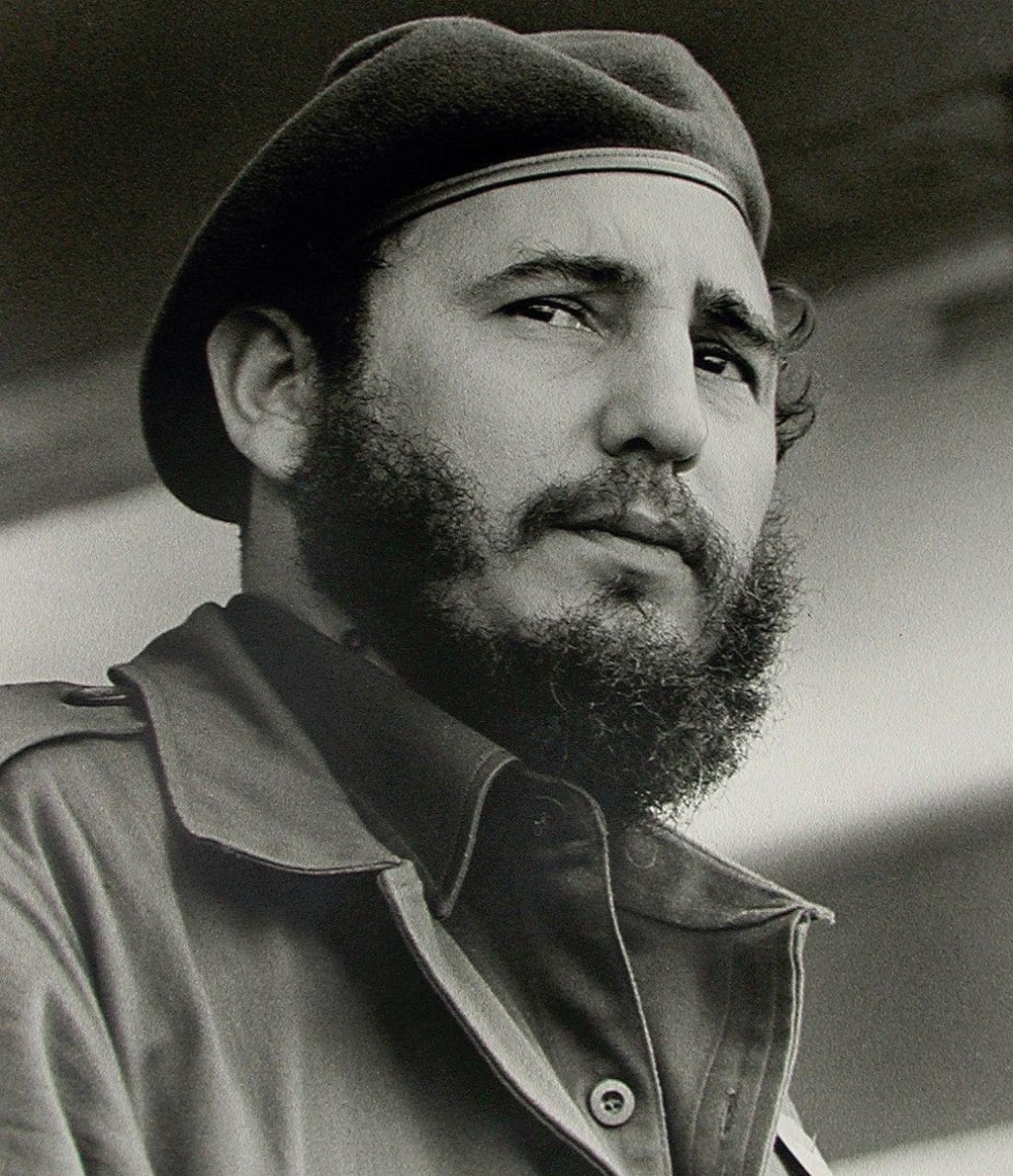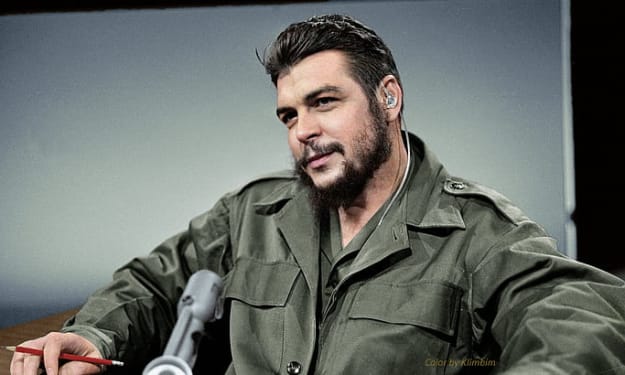
Fidel Castro (1926-2016) was a Cuban revolutionary and politician who served as the Prime Minister of Cuba from 1959 to 1976 and then as the President of the Council of State and the President of the Council of Ministers from 1976 to 2008. He was the leader of the Communist Party of Cuba and the commander-in-chief of the Cuban armed forces.
Castro came to power in 1959 after leading a successful revolution against the authoritarian government of Cuban dictator Fulgencio Batista. He then implemented a socialist government in Cuba, which included nationalizing many industries and redistributing land to the peasants.
During his tenure as leader of Cuba, Castro faced numerous challenges, including a failed invasion by the United States at the Bay of Pigs in 1961 and a tense standoff with the US during the Cuban Missile Crisis in 1962.
Castro's regime was known for its repression of political opposition, censorship of the press, and human rights abuses. Despite this, he remained popular among many Cubans for his efforts to improve access to education and healthcare, and for his defiance of US imperialism.
Castro officially stepped down from power in 2008 due to health issues and was succeeded by his younger brother, Raúl Castro. Fidel Castro passed away in 2016 at the age of 90.
Fidel Alejandro Castro Ruz was born on August 13, 1926, in Birán, a small town in the eastern province of Oriente, Cuba. He was the third of six children of Angel Castro, a wealthy sugar plantation owner, and Lina Ruz González, his mistress and later his wife.
Castro studied law at the University of Havana and became involved in politics as a student, joining the Orthodox Party and advocating for political reform and an end to corruption in Cuba.
In 1953, Castro led a failed uprising against the government of President Fulgencio Batista, resulting in his arrest and imprisonment. After being released from prison in 1955 as part of a political amnesty, Castro went into exile in Mexico, where he formed a revolutionary group called the 26th of July Movement.
On December 2, 1956, Castro and a small group of revolutionaries, including Ernesto "Che" Guevara, landed in Cuba to begin their armed struggle against the Batista regime. After two years of guerrilla warfare, the rebels successfully overthrew Batista's government on January 1, 1959.
Castro became Prime Minister of Cuba in 1959 and immediately implemented sweeping reforms, including land redistribution, nationalization of industry, and the establishment of universal healthcare and education systems. He also aligned Cuba with the Soviet Union and declared the country a socialist state.
Castro's regime faced significant challenges throughout its tenure, including a failed US-backed invasion at the Bay of Pigs in 1961, the Cuban Missile Crisis in 1962, and economic sanctions and isolation from much of the international community.
Despite these challenges, Castro remained in power for nearly 50 years, serving as both Prime Minister and later as President of Cuba until his retirement in 2008 due to health issues. He passed away on November 25, 2016, at the age of 90.
Castro's legacy is complex, with some lauding his efforts to improve the lives of many Cubans through social and economic reforms, while others criticize his regime's suppression of political opposition and human rights abuses.
Fidel Castro's emergence as a leader in Cuba was the result of a combination of factors, including his charisma, his political acumen, and the widespread discontent among Cubans with the corrupt and repressive regime of President Fulgencio Batista.
Castro was a charismatic speaker and a skilled organizer who was able to inspire and mobilize large numbers of people behind his cause. He also had a deep commitment to social justice and a vision for a more equitable and democratic Cuba, which resonated with many Cubans who were tired of living under Batista's dictatorship.
Castro's leadership emerged during the 1950s as he led a series of failed attempts to overthrow Batista's government. Despite these setbacks, Castro remained committed to his cause and continued to gain support among the Cuban people.
In 1956, Castro and a small group of rebels landed in Cuba and began a guerrilla war against the Batista regime. Despite being vastly outnumbered and outgunned, Castro and his followers were able to gain popular support and eventually overthrew the government in 1959.
After coming to power, Castro implemented a series of reforms aimed at improving the lives of ordinary Cubans, including land redistribution, nationalization of industry, and the establishment of universal healthcare and education systems. He also aligned Cuba with the Soviet Union and declared the country a socialist state.
Despite facing numerous challenges, including economic sanctions and isolation from much of the international community, Castro remained in power for nearly 50 years, serving as both Prime Minister and later as President of Cuba until his retirement in 2008.
While Castro's leadership was marked by significant achievements, such as improving access to education and healthcare, it was also characterized by repression of political opposition and human rights abuses. His legacy remains a subject of debate and controversy.





Comments
There are no comments for this story
Be the first to respond and start the conversation.